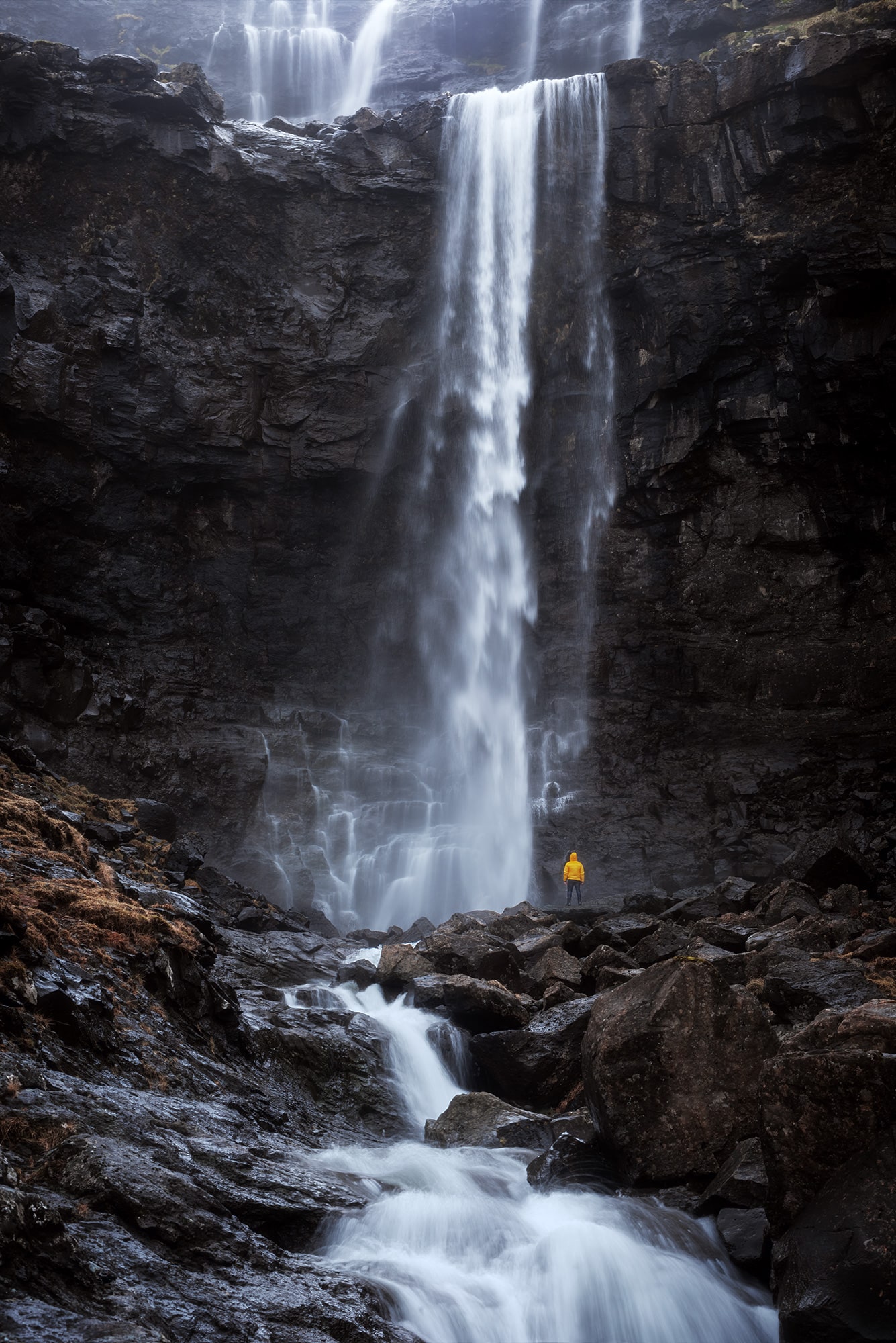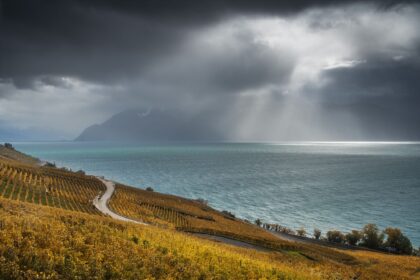Fossá Waterfall photography is a magical encounter with mist, silence, and the ancient soul of the Faroe Islands. Fossá is the tallest waterfall in the Faroe Islands, tumbling in two dramatic stages from the cliffs of Streymoy island. Located near the village of Haldarsvík, it’s a striking and accessible place to photograph, especially after heavy rain.
I visited Fossá on a rainy summer day, when the waterfall was roaring with energy. The mist was dancing around the rocks, and the atmosphere felt both wild and intimate. I didn’t climb to the upper level. I stayed near the base, just a few steps from the small roadside parking area. From there, I was able to explore different angles and get close to the flow without hiking far.
In this article, I’ll share what makes Fossá special to photograph, how to approach it safely, and a few tips to capture its raw beauty even in the rain.

A landscape shaped by Weather
The Faroe Islands are a remote group of volcanic islands in the North Atlantic Ocean, between Iceland and Norway. Their landscapes are bold and minimal, with steep cliffs, deep fjords and wild coastlines.
But what makes the Faroes truly special for photographers is the weather. Clouds, rain and fog come and go within minutes. The light shifts constantly. It is this unpredictability that creates such emotional, living images.
Fossá fits perfectly into this world. On cloudy or rainy days, the dark volcanic rock contrasts beautifully with the soft tones of the water and sky. The atmosphere becomes more powerful than the light.
My approach to photographing Fossá
Before my trip, I had imagined a very specific photo. I wanted to show the scale of the waterfall by including a human figure in the frame. My partner stood near the base, wearing a yellow jacket to stand out against the dark surroundings. The result was a quiet, striking contrast.
To emphasize the height and flow of the water, I positioned myself low, close to the foreground rocks. I used a long exposure to soften the movement and bring a sense of calm to the image. Despite the rain, I was able to work slowly and patiently. No one else was around.
➜ Information about Fossá Waterfall
➜ Car park
Tips for Photographing Fossá Waterfall
📍 Stay at the base
There’s no need to climb. The best compositions can be made just a few meters from the parking area, near the lower cascade.
🕒 Visit after rain
Fossá is most impressive after rainfall. The water volume increases, and fog or overcast skies create soft shadows and rich textures.
👁 Add scale
Including a person in the frame helps convey the height and power of the waterfall. Choose clothing that contrasts with the landscape.
📷 Use long exposure
Bring an ND filter to control light during the day. A tripod is essential. Longer exposures soften the water and create mood.
🌧 Prepare for wet conditions
Mist and rain are part of the experience. Protect your gear and yourself. Waterproof jackets and covers will make a big difference.
➜ Photo spot
My Gear at Fossá
✅ Camera body: Nikon D810
✅ Lens: Nikon 20mm f/2.8: the wide-angle lens was perfect for capturing the waterfall and the surrounding landscape.
✅ Anti-reflective filter: this reduces reflections on the wet rocks and water, enhancing the natural look of the scene.
✅ ND filter (64): essential for long exposure during daylight hours, allowing me to control the light and avoid overexposure.
✅ Tripod: crucial for keeping the camera steady during long exposure shots.
✅ Remote control: I used this to trigger the shutter without touching the camera, preventing any camera shake that could blur the image.
Planning your trip to the Faroe Islands?
If you’re planning a photography trip to the Faroe Islands, my 7-day itinerary might help you make the most of your time there. It includes all the places I explored – from quiet waterfalls like Fossá to dramatic sea cliffs and hidden villages with tips on light, access, and timing to help you capture these wild landscapes at their best.

Published on August 22, 2024 by Jennifer Esseiva



